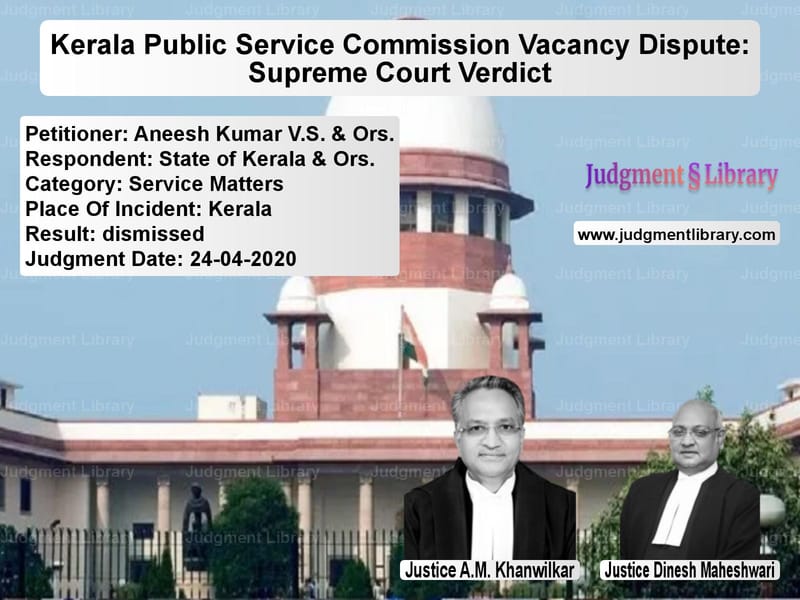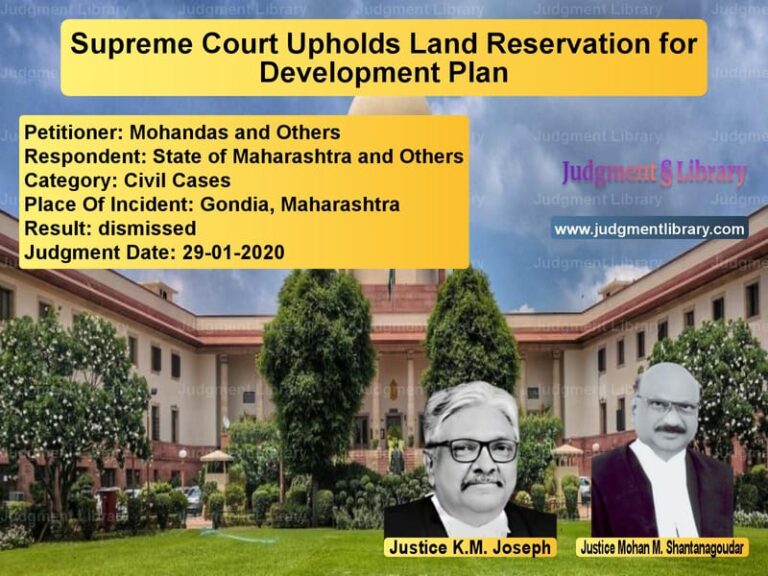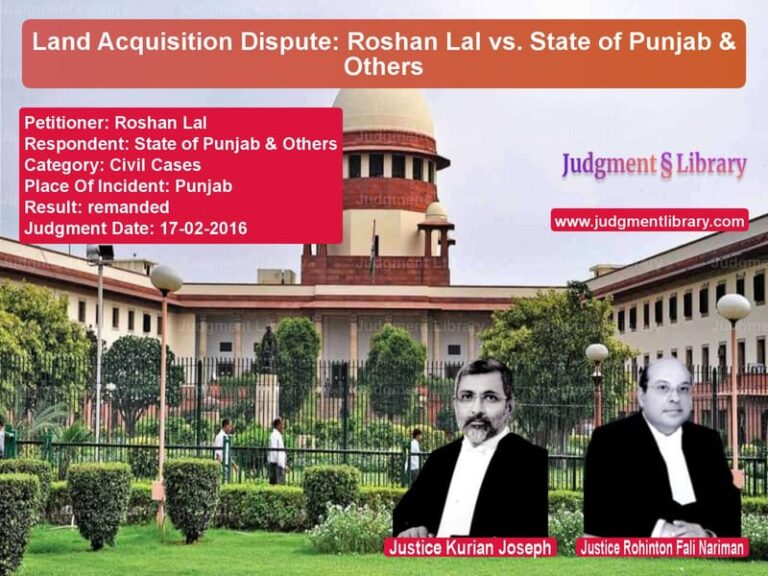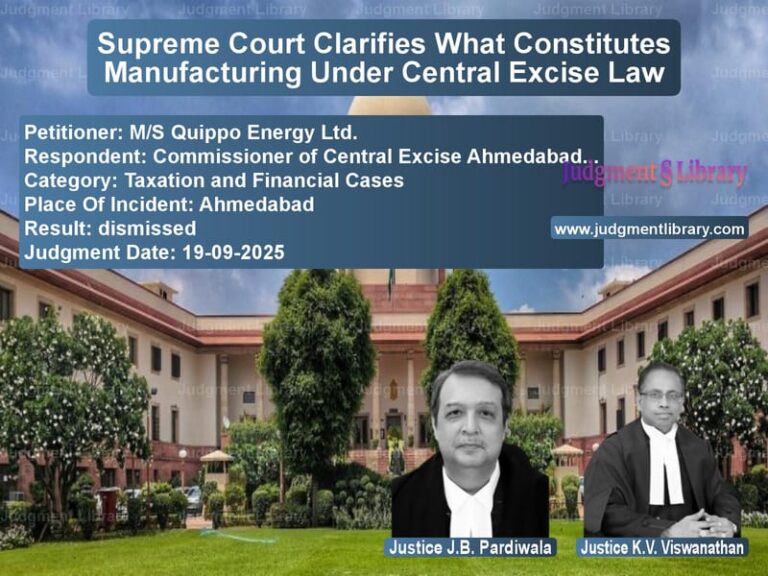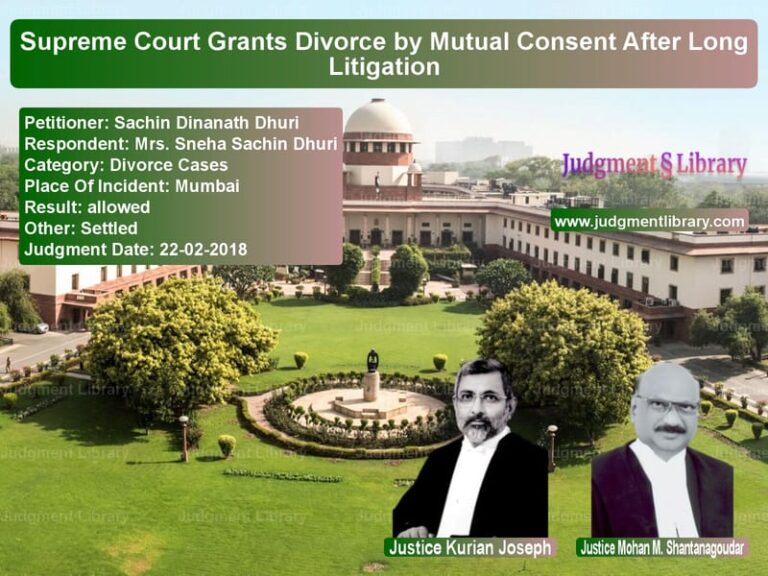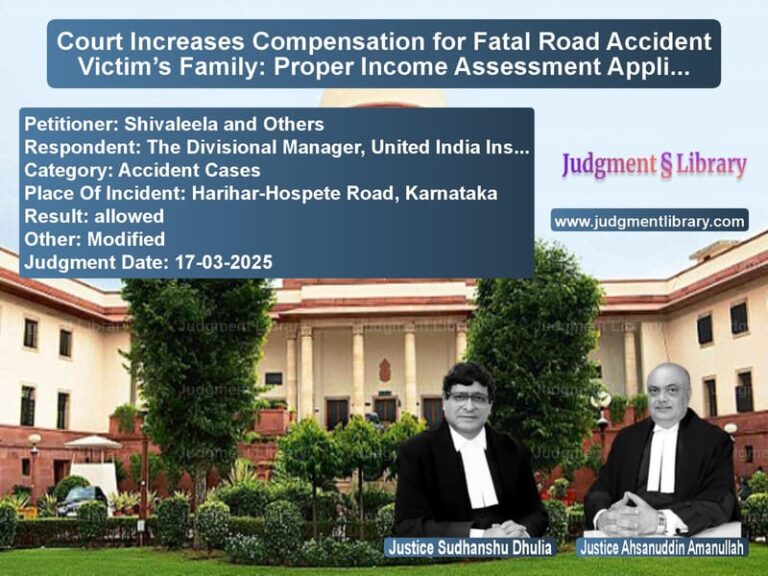Kerala Public Service Commission Vacancy Dispute: Supreme Court Verdict
The Supreme Court of India recently delivered a landmark judgment in the case of Aneesh Kumar V.S. & Ors. vs. State of Kerala & Ors., addressing the dispute over the non-joining duty (NJD) vacancies reported to the Kerala Public Service Commission (KPSC). The case revolved around the expiration of a ranked list and the rights of candidates to be appointed against vacancies reported after its expiry.
The appellants, comprising candidates included in the first ranked list (RL-I) published on 11.09.2013, challenged the denial of their appointment against 93 NJD vacancies reported on 12.07.2016. The Kerala High Court’s Full Bench dismissed their petitions, prompting them to approach the Supreme Court.
Background of the Case
The case arose from the recruitment process initiated by the KPSC for the post of Sub Inspector of Police (Trainee) in Kerala. The first ranked list (RL-I) was published on 11.09.2013, and candidates were advised from it until the High Court intervened. Various legal proceedings ensued, leading to delays in appointments.
The appellants argued that the life of RL-I should be extended beyond its normal expiration due to the interim court orders that had prevented appointments during its tenure. They invoked the legal maxim actus curiae neminem gravabit (an act of the court shall prejudice no one) to claim their right to be considered for the NJD vacancies.
Legal Issues
- Whether the expiry of RL-I on 01.06.2016 precluded the appellants from being appointed against vacancies reported thereafter.
- Whether the principle of actus curiae neminem gravabit applied to extend the validity of RL-I.
- Whether KPSC had acted arbitrarily in treating RL-I as expired despite pending vacancies.
Arguments of the Petitioners
The appellants contended that the delays caused by court proceedings should not prejudice their right to appointment. They argued:
- The interim orders passed by the Kerala Administrative Tribunal (KAT) and the High Court had prevented KPSC from advising candidates from RL-I.
- Since the High Court’s judgment validating RL-I came after considerable delay, the life of RL-I should be extended accordingly.
- The 93 NJD vacancies reported on 12.07.2016 should be filled by candidates from RL-I rather than subsequent ranked lists.
- Rule 13 of the Kerala Public Service Commission Rules of Procedure, 1976, supported their claim as it allowed the extension of a ranked list under certain conditions.
Arguments of the Respondents
The State of Kerala and KPSC countered the appellants’ claims by stating:
- RL-I had expired as per Rule 13, and the subsequent ranked list (RL-II) had already been published on 26.05.2015.
- Appointments could only be made from an active ranked list, and vacancies reported after the expiry of RL-I must be filled from the subsequent list.
- The principle of actus curiae neminem gravabit did not apply because the court’s actions had not caused actual prejudice to the appellants.
- Allowing appointments from an expired ranked list would violate the principles of fair recruitment and equal opportunity.
Supreme Court’s Judgment
The Supreme Court upheld the judgment of the Kerala High Court’s Full Bench, ruling that RL-I had expired on 01.06.2016. The Court reasoned:
- The life of RL-I could not be extended indefinitely, even if court proceedings had delayed some appointments.
- The principle of actus curiae neminem gravabit did not apply because the expiry of RL-I was a legal consequence of statutory provisions.
- The 93 NJD vacancies reported on 12.07.2016 must be filled from the ranked list in force at that time, which was RL-II.
- KPSC had acted in accordance with the recruitment rules and had not arbitrarily denied appointments to the appellants.
Impact of the Judgment
The judgment reinforces the importance of adhering to statutory recruitment rules and maintaining the integrity of ranked lists. It clarifies that:
- Ranked lists have a definitive lifespan, and their expiration is governed by rule-based criteria.
- Appointments cannot be made from an expired ranked list unless explicitly permitted by law.
- Legal challenges and court proceedings do not automatically extend the validity of ranked lists.
- Government bodies must report vacancies promptly to ensure timely appointments.
The ruling provides clarity on recruitment practices in Kerala and sets a precedent for future cases involving similar disputes over ranked lists and NJD vacancies.
Petitioner Name: Aneesh Kumar V.S. & Ors..Respondent Name: State of Kerala & Ors..Judgment By: Justice A.M. Khanwilkar, Justice Dinesh Maheshwari.Place Of Incident: Kerala.Judgment Date: 24-04-2020.
Don’t miss out on the full details! Download the complete judgment in PDF format below and gain valuable insights instantly!
Download Judgment: Aneesh Kumar V.S. & vs State of Kerala & Or Supreme Court of India Judgment Dated 24-04-2020.pdf
Direct Downlaod Judgment: Direct downlaod this Judgment
See all petitions in Employment Disputes
See all petitions in Recruitment Policies
See all petitions in Public Sector Employees
See all petitions in Judgment by A M Khanwilkar
See all petitions in Judgment by Dinesh Maheshwari
See all petitions in dismissed
See all petitions in supreme court of India judgments April 2020
See all petitions in 2020 judgments
See all posts in Service Matters Category
See all allowed petitions in Service Matters Category
See all Dismissed petitions in Service Matters Category
See all partially allowed petitions in Service Matters Category

